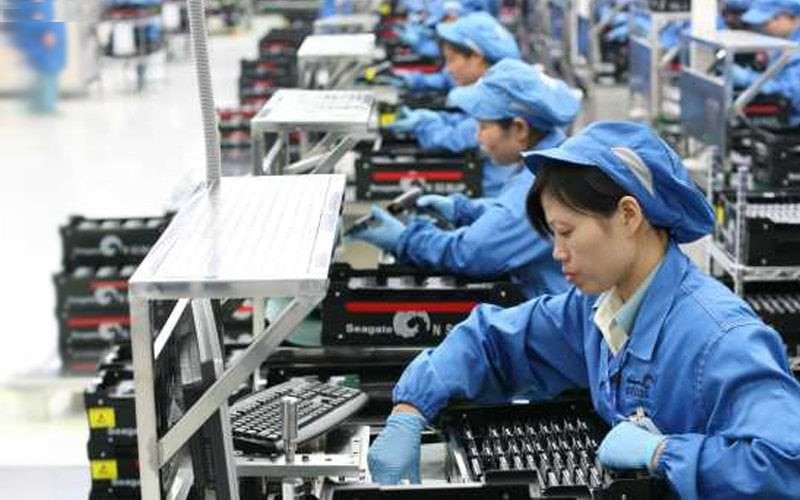
PETALING JAYA: Measures to boost trade and investment as well as to develop human capital are high on the Federation of Malaysian Manufacturers (FMM) wish list for Budget 2023.
Among others, problems such as the high cost of doing business and the slow progress to 5G capability must be resolved, FMM president Soh Thian Lai said.
For a start, he told FMT Business, assistance from the government is still essential to help industries meet the challenges of a prolonged uncertainty and to ensure that Malaysia remains a preferred investment destination.
Prime Minister Anwar Ibrahim, who is also the finance minister, will table the new iteration of Budget 2023 on Feb 24.
Introducing measures to provide short-term support for business recovery and investment in long-term programmes while managing a precarious debt position will prove to be a herculean task for the government.
Soh said the high cost of doing business is among the main challenges for industries in 2023. “Geopolitical conflicts have caused energy prices to soar, and in the process they have disrupted supply chains and rattled financial markets,” he said.
As an immediate measure, he said, the government should raise the allocation for the domestic investment strategic fund (DSIF). “We believe the RM100 million already earmarked is insufficient to support business recovery,” he said.
Upskilling workforce and enhancing mechanisation
Soh said while the government should focus on recovery in the short term, there must be a long-term strategy to enhance the skills of the country’s workforce.
“We need to emphasise on building a pool of highly skilled workers to move up the value chain,” he said.
At the same time, he said, steps must be taken to reduce Malaysia’s reliance on foreign workers.
He said the proposal to allocate a total of RM200 million to enhance the capability of the workforce under the first iteration of Budget 2023 tabled before the Nov 19, 2022 general election by then finance minister Tengku Zafrul Aziz should be maintained.
Tengku Zafrul had proposed that RM180 million be invested in technical and vocational education and training (TVET) under the Malaysian Skills Certification Programme, and another RM20 million be set aside to support the transformation towards high valued-added activities under the National Dual Training System.
Soh proposed that 60% of the proceeds from the levy imposed on foreign workers be directed to the national TVET apprenticeship fund.
In support of the move to mechanisation, he said, the remaining 40% of the levy collected should be directed to the national automation fund.
Speeding up the 5G journey
Soh noted that while Malaysia already has a plan to widen 5G coverage across the country, the pace has been less than satisfactory.
“Digital transformation can only be achieved if there is an underlying infrastructure to support it,” he said.
However, he said, the progress of the Jendela project, which is the national digital infrastructure plan, has not progressed significantly.
“There has been no change in the broadband or 5G coverage in the 47 industrial areas earmarked under the initiative in Budget 2022,” he said.
Soh said Industry4Wrd, an initiative to provide financial support for small and medium enterprises (SMEs) in the manufacturing sector to embrace Industrial Revolution 4.0 (IR4.0) was commendable, but the RM35 million allocated for the project is insufficient. “It should be raised to RM150 million,” he said.
Trade and investment incentives
He also expressed support for the government’s initiative to resume negotiations on the Malaysia-EU free trade agreement that was launched in 2010 but put on hold in 2012 after several rounds of negotiations.
“To bolster the country’s exports and attract foreign investment, free trade is the way forward,” he said.
Soh said free trade could also help to mitigate the impact of the EU’s carbon border adjustment mechanism (CBAM) on Malaysia. The CBAM is expected to kick in, in stages, this year.
The CBAM is a tool that determines a fair price for carbon emitted during production of carbon-intensive goods that enter the EU. This is to encourage cleaner industrial production in non-EU countries to level the playing field for domestic producers in the bloc that already have to comply with new requirements.
Apart from that, the FMM also expressed support for an expansion of preferential trade agreements (PTAs) with emerging economies such as Bangladesh and the UAE.
Soh said exports to these markets already topped RM50 billion in 2021.
“To remain competitive and fully reap the benefits of free trade, manufacturers need to continuously upgrade equipment and innovate,” he said.
“Fast disbursement of grants and incentives for R&D (are essential) given that time is of the essence when it comes to new product development and commercialisation.
“(The manufacturing sectors) need adequate infrastructure, including high quality internet, to support their technological transformation and upgrading — including automation and digitisation — as they move up the value chain.”
In light of such needs, he said, the government should re-introduce the goods and services tax (GST) at a low rate of 4% beginning in 2024 to support its fiscal consolidation.
“This can be part of a thorough and holistic review of Malaysia’s tax system. But for this, stakeholders must also be consulted,” he said.
Source: https://www.freemalaysiatoday.com/category/highlight/2023/02/17/businesses-need-a-leg-up-in-recovery-drive-says-fmm/

